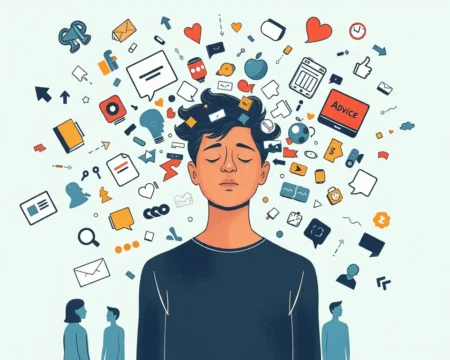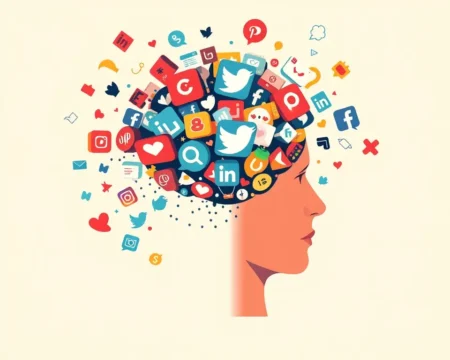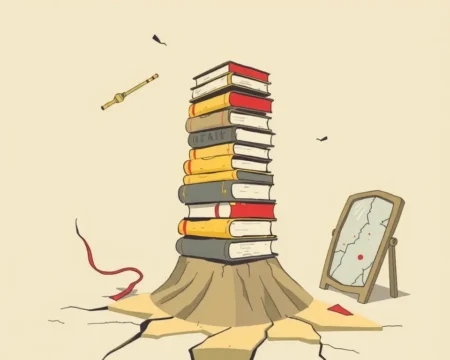The self-help industry is a booming market, projected to reach $14 billion by 2025, with thousands of new titles published each year covering everything from relationships and personal growth to coping with anxiety and depression. But do these books actually deliver on their promises? The truth is, the effectiveness of self-help books is a complex issue, and what works for one person may not work for another. This article explores the nuances of the self-help world, offering guidance on how to navigate it effectively and avoid common pitfalls.
The Promise and the Pitfalls of Self-Help
Self-help books offer the appealing promise of personal improvement and empowerment. They provide accessible advice and strategies for tackling life’s challenges and are more democratic, reaching those who might not otherwise seek therapy due to cost or accessibility. Research suggests that self-help books can be as effective as private therapy for some issues, particularly mild anxiety and depression. One study showed that individuals who read books on relieving depression showed significant improvement comparable to rates achieved by therapists. However, it’s crucial to approach these books with a critical eye.
The “One-Size-Fits-All” Fallacy
A major criticism of self-help books is their tendency to adopt a “one-size-fits-all” approach. These books are often written with a broad audience in mind, failing to account for individual differences in personality, context, or specific challenges. What works for one person may not be effective—or could even be harmful—for another. Additionally, some self-help books are not based on empirical research or scientific validation, instead offering anecdotal evidence, and some even make false promises, like a cure, that may cause harm.
The Risk of Unrealistic Expectations
The marketing of self-help books often creates unrealistic expectations. Many books promise quick fixes and permanent change, which is rarely the case. This can lead to disappointment, self-blame, and frustration if the reader does not experience the promised transformation. The self-help industry has been criticized for prioritizing profit over actual help, creating a cycle where readers are always chasing the next “solution”.
The “Negativity Bias” and the Search for Self-Acceptance
Many self-help books aim to improve self-esteem and foster self-compassion, which are areas where many people struggle. Humans have a natural “negativity bias,” making them more prone to self-loathing, guilt, and shame than self-acceptance. This innate tendency can make the advice in self-help books difficult to implement, further exacerbating feelings of inadequacy when results aren’t immediate.
Maximizing the Benefits of Self-Help
Despite their limitations, self-help books can be a valuable resource if approached strategically. Here are some tips to maximize the benefits and avoid potential harm:
Be Specific and Selective
Choosing the right book is crucial. Don’t just grab the latest bestseller. Consider your specific needs and challenges. Look for books written by experts with qualified backgrounds and research-backed advice. Problem-focused books, which address specific issues like anxiety or depression, tend to be more effective than general self-improvement books.
Manage Expectations
Be realistic. No book can instantly transform your life. Change takes time, effort, and consistent action. Don’t expect a magic bullet. Instead, view self-help books as tools to support your journey, not to completely solve all of your problems.
Actively Engage with the Material
Self-help books are not meant to be passively consumed. Apply what you learn, implement the advice and exercises in your life. Develop a plan to put the concepts into action, and experiment with the ideas to see what works best for you. Revisit the book, take notes, and reflect on the content regularly to reinforce your learning.
Focus on Action and Practice
Don’t just read; do. Stop reading when you find a change you need to make and begin practicing the advice. Continue this cycle of learning and implementation until you reach your goals. A key to success is consistency and patience.
Seek a System
Develop a system for applying what you learn from self-help books. This system could involve setting clear goals, taking notes, and creating actionable steps to implement the strategies in the book. Regularly review and refine your approach as needed.
Combine Self-Help with Other Resources
Self-help books should not be a substitute for professional help. If you are struggling with severe mental health issues, it’s important to seek guidance from a qualified therapist or counselor. Self-help can be a useful supplement to therapy, but it is not a replacement.
Engage in Discussion
Share what you are learning with others. Discuss the book’s content with friends, family, or online communities. Hearing different perspectives can deepen your understanding and help you apply the concepts more effectively. A book club setting can be a great way to explore the material.
Beyond Traditional Self-Help
While traditional self-help books can be useful, there are alternative approaches to personal growth that may be more effective for some individuals.
Embrace Critical Thinking
Critical thinking is essential when engaging with self-help material. Question the claims made by authors, look for evidence-based advice, and be wary of books that promise quick fixes or make exaggerated claims. Books on logic and critical thinking can help you develop a more discerning approach to self-improvement. Some highly rated critical thinking books include Thinking, Fast and Slow by Daniel Kahneman and The Art of Thinking Clearly by Rolf Dobelli.
Metacognition and Self-Awareness
Metacognition, or “thinking about thinking,” is a powerful tool for self-improvement. By developing a better understanding of how you think, you can identify patterns and biases that might be holding you back. Books like Know Thyself: The Science of Self-Awareness delve into the science of metacognition and can help you cultivate this skill.
Exploration through Literature and Philosophy
Sometimes the best personal growth comes from unexpected sources. Reading literature and philosophy can provide new perspectives on life and challenge your beliefs. These works can inspire introspection and self-discovery in a way that traditional self-help books sometimes can’t.
Reflection and Journaling
Instead of relying solely on external advice, try taking time for personal reflection. Journaling can be an effective way to explore your thoughts, feelings, and experiences. This process can lead to new insights and a deeper understanding of yourself.
“Anti Self-Help” Approaches
Some writers challenge the norms of the self-help genre, arguing that many struggles originate from societal structures rather than personal flaws. These “anti self-help” narratives encourage you to question cultural messages and explore your values and beliefs on your own terms.
When Self-Help Doesn’t Help
Despite our best efforts, sometimes self-help books simply do not provide the relief or transformation we seek. When this happens, it is important to consider other options, and to not blame yourself for the advice not working.
Reframe “Failure”
Don’t see lack of progress as a personal failure. Instead, view it as an opportunity to learn and adjust your approach. Experiment with different strategies, and be patient with yourself. Change is a process, and setbacks are normal.
Seek Support
Reach out to friends, family, or support groups. Talking with others can help you feel less alone and provide new perspectives on your challenges. It is ok to ask for help when you need it.
Trust Your Inner Compass
Ultimately, the most important guide in life is your own inner wisdom. While external advice can be helpful, it’s crucial to listen to your intuition and make choices that align with your values.
Conclusion
Self-help books can be a useful tool for personal growth, but they are not a magic solution. By approaching them with a critical eye, engaging actively with the material, and combining them with other resources, you can maximize their benefits and avoid potential pitfalls. Remember that the journey of self-improvement is unique to each individual, and it’s okay to explore different paths to find what works best for you.










